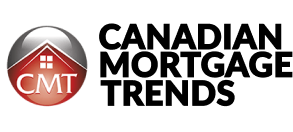Definition: A conversion rate is the interest rate a lender offers when a borrower converts their mortgage from one term type to another. Conversion rates allow borrowers to switch their mortgage type—such as from a variable to a fixed rate—without breaking the mortgage, but often come with terms specific to the lender.
Types of mortgage conversions
Conversion rates apply in situations like:
- Variable to fixed: Moving from a variable rate to a fixed rate term.
- Convertible term to another term: Switching a convertible mortgage to a fixed or variable term.
- Line of credit to a term: Transitioning from a line of credit to a fixed or variable term.
Conversion rate options
Conversion rates are generally not as competitive as rates offered to new clients, with five-year fixed conversion rates, for example, often set about 20 basis points higher than the rates a new borrower might receive.
Lenders may offer conversion rates in various forms:
- A set discount below posted rates
- A rate that can be negotiated at the time of conversion
- A pre-defined discounted rate
- The lender’s “broker rate,” which is typically the most competitive option, depending on the lender
Tip: If you’re converting from a variable to a fixed rate, many lenders require that the new fixed term be at least 3–5 years.
Last modified: November 5, 2024



